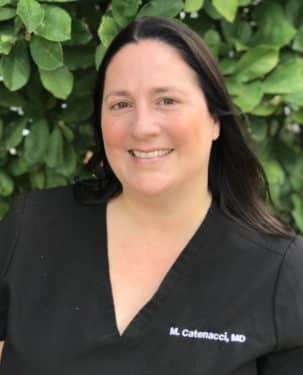If you want to start a family but experience obstacles in your reproductive health, a lot can feel beyond your control. Emotions run high — from sadness to fear, anger to frustration. Here, Michelle Catenacci, MD, obstetrician, gynecologist, and fertility specialist with Advanced Fertility Center of Chicago, shares her view of what people can control before and during fertility treatment, as well as exciting advancements in fertility health.

Q: What are you most excited about on the horizon in the world of fertility?
The use of human stem cells, I believe, will have a significant impact on future fertility treatment options. Researchers have been developing ways to create eggs and sperm, known as germ cells, from stem cells. This research is in its infancy, but the potential future advances for patients are incredible.
Q: How might stem cells change people’s experience with infertility?
Being able to harvest stem cells from a person and transform them into an egg or sperm could revolutionize how we treat women with diminished egg reserve or premature menopause. It may also become treatment for men without sperm production or even for same-sex couples. Currently, there is no reliable way of creating new germ cells, but with continued research, this has the potential to drastically reduce the need for egg donation cycles. I am hopeful that during my career, we will see this currently experimental idea become a reality.
Q: Is there anything people should avoid in order to better support their fertility?
There are many things that couples can do to improve their overall health as they begin their fertility journey. The most important thing would be to stop smoking or vaping if they currently do. I also recommend alcohol only in moderation and abstaining from drugs like marijuana, which can affect both sperm production and ovulation.
Q: What lifestyle changes can people make either before or during fertility treatment?
It is important for women to start a prenatal vitamin to prevent certain birth defects when they become pregnant. I also recommend a well-balanced diet with antioxidants and anti-inflammatory rich foods such as salmon and leafy greens. Plastics can disrupt hormones, and reducing exposure can be beneficial. Moderate intensity exercise is good for you, but sometimes very high intensity workouts can disrupt ovulation. Things like daily walking or yoga are fertility-friendly activities that can be added into an exercise routine. Most importantly, however, I tell my patients they do not have to be so strict with themselves, but just enjoy things in moderation.











